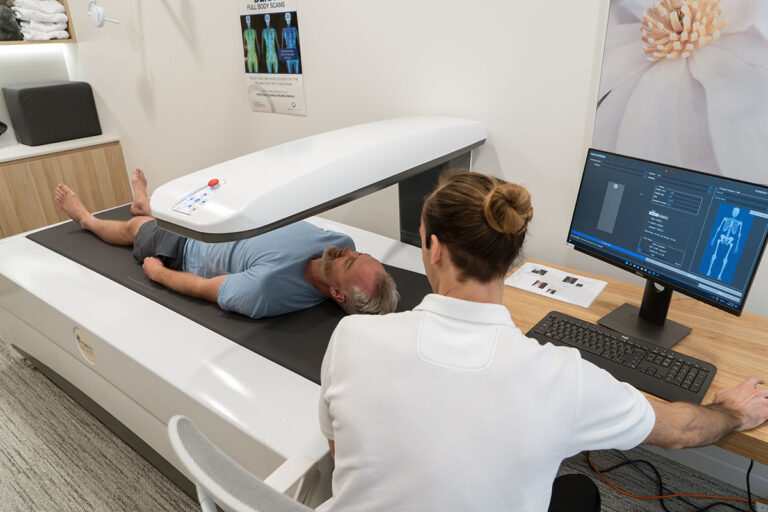Today, on World Diabetes Day, we at Oracle Healthcare recognise the urgency of addressing the increasing prevalence of diabetes here in Australia. Shockingly, almost 1.3 million Australians currently live with type 2 diabetes, with that number rising by one person every 5 minutes (1).
The good news? About 60% of type 2 diabetes cases can be delayed or even prevented with lifestyle changes (1). Our dedicated team of healthcare experts is taking a comprehensive approach to help prevent, manage, and potentially reverse type 2 diabetes.
A silent condition
Type 2 diabetes is often referred to as a ‘silent’ condition, as it can develop without any noticeable signs or symptoms (2). This means you could be heading towards developing the condition without even realising. Contrary to a common misconception, it’s not just the overweight or obese who are at risk – we’ve seen numerous cases where individuals with a ‘healthy’ weight range develop the condition.
Recent evidence suggests that, with the right interventions, type 2 diabetes can be not only prevented and managed, but it can also be reversed (3). Lifestyle changes, including changes to diet and exercise, have shown comparable effectiveness to bariatric surgery in type 2 diabetes remission, but without the potential side effects associated with surgery (4). This is precisely where our preventative healthcare approach at Oracle can make a difference.
Our multidisciplinary team conducts a range of assessments to determine your risk of developing diabetes or how well you’re managing it if already diagnosed. From there, we work with you to create a tailored plan based on your unique needs. For instance, our Accredited Exercise Physiologists* can design a program to help you use insulin more effectively, maintain a healthy weight, lower blood pressure, and reduce the risk of heart disease (5). Remember, even small steps matter – breaking up sitting time each day can be beneficial for your metabolic health (6).
Early intervention
A comprehensive health check and early intervention are crucial to not only prevent the development of type 2 diabetes, but also if diagnosed, carefully manage your condition with our multidisciplinary healthcare team. This is needed to not only effectively manage your diabetes, but also the common comorbidities and complications often associated with it, which can include conditions such as high blood pressure, heart disease, kidney disease, and neuropathy.
It’s important to also recognise that our mental health can play an important role in the development and management of diabetes, which can work both ways – we can develop type 2 diabetes and other metabolic disease with long term mental ill-health, and our mental health can suffer after a diabetes diagnosis (5).
A proactive approach
At Oracle Healthcare, we believe in a proactive approach to your whole health. Our team is committed to providing you with the tools, support, and personalised care needed to navigate the complexities of diabetes. Together, we can work towards a healthier, type 2 diabetes-free future.
Book an appointment with our team today and take the first step towards a brighter, healthier tomorrow!
* “Accredited Exercise Physiologists are university-qualified allied health professionals who have the skills and knowledge to prescribe exercise as medicine for those living with chronic conditions like diabetes.”
References
-
- https://www.diabetesaustralia.com.au/about-diabetes/diabetes-in-australia/
- Shibib et al. 2022. Reversal and Remission of T2DM – An Update for Practitioners. Vascular health and risk management, 18, 417–443. https://doi.org/10.2147/VHRM.S345810
- Jin et al. 2022. Remission of Type 2 Diabetes: User’s Guide: Diabetes Canada Clinical Practice Guidelines Expert Working Group. Canadian Journal of Diabetes, 46(8), 762-774. https://doi.org/10.1016/j.jcjd.2022.10.005
- Rosenfeld et al. 2022. Dietary interventions to treat type 2 diabetes in adults with a goal of remission: an expert consensus statement from the American College of Lifestyle Medicine. American Journal of Lifestyle Medicine, 16(3), 342-362. https://doi.org/10.1177/15598276221087624
- Media release: Exercise for type 2 diabetes. Exercise & Sports Science Australia (ESSA) https://www.essa.org.au/Public/Public/News_Room/Media_Releases1/2020/
Exercise_for_type_2_diabetes_Supporting_mental_and_physical_health.aspx - Owen et al. 2010. Too Much Sitting: The Population Health Science of Sedentary Behavior. Exercise and Sport Sciences Reviews 38(3):p 105-113. DOI: 10.1097/JES.0b013e3181e373a2



